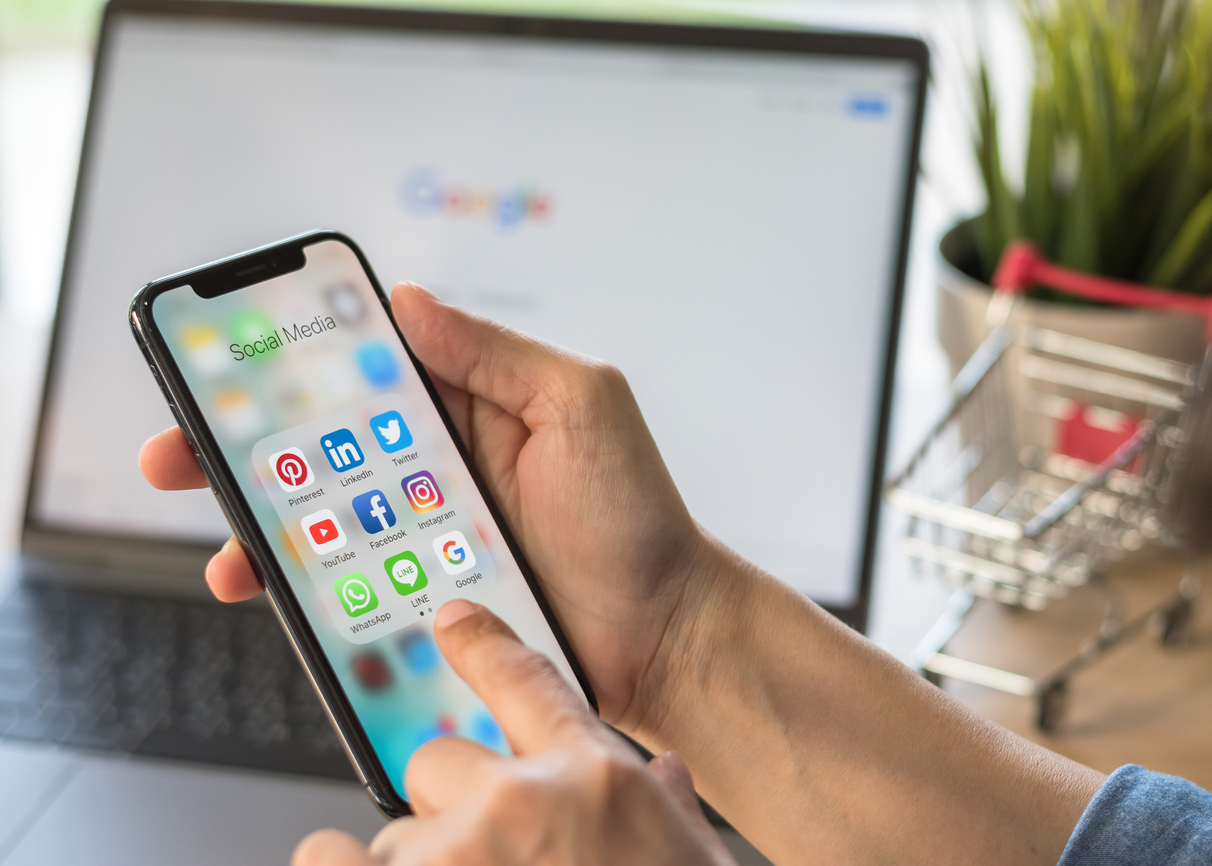If online shopping is in your 2025 holiday season plans, the tips below will help keep you safe from hackers and identity theft.
As the 2025 holiday shopping season gets going, it’s important to remember that there are scammers, fraudsters, and cybercriminals out there, waiting to steal your personal information and use it against you, up to and including draining your bank account in minutes.
It’s been a problem for a long time, and it seems to be getting worse. According to the latest data from the Federal Trade Commission and industry reports:
- Fraud complaints remain high, with 5.7 million reports filed in 2025, including 1.4 million identity theft cases.
- Financial losses from fraud surged to $12.5 billion, a 25% increase over the previous year.
- Identity theft continues to dominate accounting for roughly 25% of all fraud reports.
- The median loss per victim is about $500, and scammers increasingly exploit bank transfers and cryptocurrency, making recovery harder.
- Common scams include fake shipping alerts, bogus charities, and social media ad fraud, with nearly 9 in 10 adults reporting exposure to at least one scam this year.
Fortunately, there are strategies to keep your personal information secure online.
Some General Rules and Best Practices for Online Shopping

- Use very strong passwords. No more “password123.” These days, you need very strong and unique passwords to remain secure. Need help? There are plenty of password managers out there to assist.
- Watch out for email phishing scams. The purpose of the common “phishing” scam is to get you to click on the fraudulent link they send. That’s the cyber equivalent of inviting the thief into your home. From there, they can take control of your electronic devices and do virtually anything they want. How can you protect yourself?
- Always check the sender’s email address. Is it plain and simple, or does it route back to an unfamiliar address?
- Watch out for spelling/grammar issues. Many phishing scams originate overseas, so if you get one with particularly bad spelling or grammar, it should be a red flag.
- Monitor bank and credit card statements for fraudulent charges. You’ve never been to Boise, Idaho. Yet your credit card statement says you purchased a $1,500 laptop from a Best Buy there. Sound far-fetched? It isn’t. You’d be surprised how many times obviously fraudulent purchases slip through the cracks.
Each month, monitor your statements for purchases you didn’t make. The credit card or bank can usually take care of it. But don’t assume they’re going to catch it. That’s on you.
Be Careful Around Public WiFi

Public WiFi hotspots may be convenient, but, they can also be a magnet for people with bad intentions, especially if you’re not careful. Here are some tips for keeping your information secure if you’re using public WiFi, whether it’s at a hotel, a coffee shop, or airport.
- Use VPN services. A VPN, aka Virtual Private Network, can help you protect your online privacy. This is especially important when accessing your financial accounts or actually making purchase transactions.
- Never connect to unsecured public WiFi. Cybercriminals can trick you into connecting to fake networks.
- Use HTTPS-protected websites. Look for a green lock icon and address bars beginning with https, as opposed to the standard http.
- Turn off autoconnect. Make sure you connect manually every time, to eliminate any accidental connections.
- Configure your mobile phone, tablet and/or laptop to forget. These devices give you the option to “forget” a public WiFi connection. This can also help with inadvertent connections.
Be Smart With Your Smartphone

85% of Americans have a smartphone, which is incredible, especially in light of the fact that these ubiquitous devices have only been around for 15 years or so. Unfortunately, smartphones are also common targets for hackers and fraudsters. Here are some red flags to watch out for, to let you know your phone may have been hacked.
- Phone suddenly starts to lose power quickly.
- You’re receiving a large number of unfamiliar calls or texts.
- Phone runs very slowly, taking a long time for things that used to take seconds.
- Phone prompts ask you repeatedly to enter or reset passwords, or sign in for verification.
Those tips can help you recognize if you’ve been hacked. But here are some ways to keep your smartphone safe to reduce the chances of getting hacked in the first place:
- Never download unknown apps.
- Don’t click on strange or unknown attachments.
- Avoid “Jailbreaking” your phone.
- Enable two-factor authentication.
- Use caution with QR codes.
Social Media Security

Finally, social media. It seems like all the world is on at least one platform. Unfortunately, so are the bad guys. Two hard-and-fast rules for social media security. The first: never, ever give out your social security number in a chat room or messaging platform. No reputable brand or trustworthy friend will ask for it.
The 2nd rule: do not use the same password for multiple social media platforms. Your Facebook should not be the same as your TikTok, Snapchat, or Twitter. Make them all different and keep them securely stored in a password manager. Don’t make it easy for the bad guys to access your accounts.
Here are some more tips for making sure bad actors don’t target you based on any posts.
- Be mindful about what you share. On social media, we frequently give out personal information. Fraudsters can use that to misuse your identity.
- Be careful about sharing the following information:
- Middle name
- Birthday
- Hometown
- Relationship status
- High school and college graduation dates
- Names of pets
- Affiliations, interests, hobbies
Admittedly this list can sound a little overcautious. Just keep in mind that hackers and ID thieves are looking for precisely this type of personal information to impersonate you online.
- Do not share vacation photos until you get back home. Would-be thieves often monitor people’s social media feeds for vacation photos. It tells them you’re not home, and it’s safe to attempt a break-in. Even though this isn’t direct protection from identity theft necessarily, no one wants the risk of someone breaking-and-entering their home.
Follow these rules and you’ll be a lot more secure.
We understand there is a lot of information here. But as illustrated above, there are a lot of bad guys online, just waiting for you to be careless with your personal information.
You’ll enjoy the 2025 Holiday shopping season a whole lot more if it’s free of fraudsters and cybercriminals.
IMPORTANT NOTE FOR FMI POLICYHOLDERS: If you’ve had your identity stolen, FMI may be able to help! We offer coverage that provides access to a full suite of Identity Theft Resolution Services for policyholders who have been hacked, or otherwise had their identity compromised online.
Have a safe, happy, and healthy holiday season. And remember…if you’re going away, post your pics when you get home.
Sources: